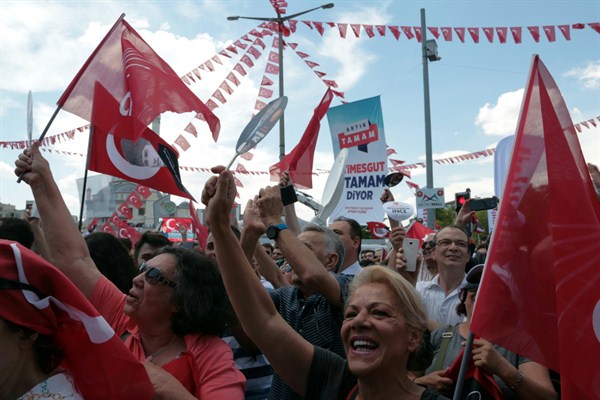On June 24, Turkish voters will head to the polls for presidential and parliamentary elections that are being held approximately 15 months ahead of schedule. Popular wisdom among many Turkey watchers is that President Recep Tayyip Erdogan chose to call the elections early, back in April, because economic headwinds could worsen in the coming year, making it more risky to wait until November 2019, when the elections were originally due to take place.
The stakes of this month’s vote are enormous. The elections are the last step before Turkey formally transitions to an executive presidential system of government, which Erdogan was able to narrowly push through via popular referendum last year. The post of prime minister, which Erdogan won back in 2003 after he and his party first came into power, is set to be abolished. The empowered president will have sweeping authority to appoint high-level officials, dissolve parliament, rule by decree and impose emergency laws, like the ones that have been in place since a failed military coup in July 2016. These changes would represent the most profound shift in Turkey’s governance since its creation as a modern nation-state in 1923.
Erdogan has long complained that the previous parliamentary system hampered the decision-making process at a moment when regional and domestic threats require a strong, centralized and streamlined executive branch to rule the country. He knows he can count on a loyal base of supporters who credit him and his Justice and Development Party, or AKP, with keeping the country afloat in a sea of regional troubles. Erdogan is also banking on right-wing voters from the Nationalist Movement Party, or MHP, which formed an electoral bloc with the AKP, known as the Cumhur Ittifaki, or People’s Alliance, to bolster his ranks at the ballot box.

